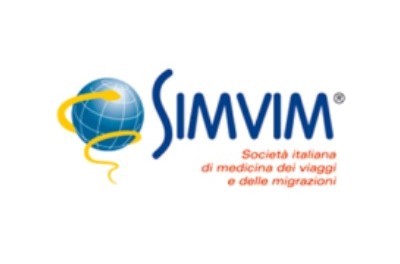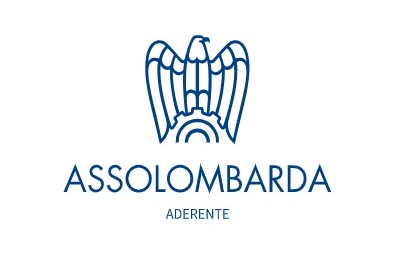Cleaning, disinfecting and sanitising: what are the differences?
Category: News - Author: Dott.ssa Maddalena Maganza
Let's take a look at some definitions and analyse them more in detail:
CLEANING is the set of operations necessary to remove “visible dirt” from surfaces, objects and environments: sweeping, dusting, degreasing, washing. Cleaning activities use detergents/hygiene products - the two terms are equivalent - that remove dirt by mechanical or physical action. Products marketed as sanitisers, without a specific authorisation, do not have disinfectant properties: they are simply cleaning products.
DISINFECTION is the activity that includes procedures and operations to reduce the microbial load in an environment, surface, instrument, etc. To be effective, disinfection must always be preceded by thorough cleaning. Specific products (biocides or medical-surgical devices) are used for disinfection, and their effectiveness against different micro-organisms, such as viruses, must be declared on the label. Disinfectant products are authorised for marketing on the basis of scientific evidence (including proof of efficacy).
SANITISATION refers to the set of procedures and operations aimed at making certain environments healthy through cleaning and disinfection activities and by controlling and improving the microclimate conditions in terms of temperature, humidity and ventilation, as well as lighting and noise. In this phase of pandemic containment, the term sanitisation is understood as all the actions of cleaning + disinfection + control of aeraulic systems, where present.
WHY DO WE TALK ABOUT CLEANING AND SANITISATION IN MANUFACTURING?
Recent provisions on the containment and management of epidemiological emergencies from COVID-19 require that sanitisation operations be encouraged. In businesses, shops and services, the regular sanitisation of halls, rooms, workstations, other areas and items must be ensured.
In particular, in the Shared Protocol for companies, annex 6 to the Prime Ministerial Decree of 26/04/2020, art. 4 indicates the prescriptions concerning CLEANING AND SANITISATION IN CORPORATE WORKPLACES:
- the company ensures the daily cleaning and periodic sanitisation of the premises, rooms, workstations and common and leisure areas;
- if a person with COVID-19 is present on company premises, the premises must be cleaned and sanitised in accordance with the provisions of Ministry of Health Circular No. 5443 of 22 February 2020, and ventilated;
- end-of-shift cleaning and periodic sanitisation of keyboards, touch screens and computer mice with appropriate detergents must be ensured in both offices and production departments;
- in accordance with the Ministry of Health's instructions, the company can organise special/periodic cleaning operations using social shock absorbers (also as an exception);
- in geographic areas with the highest endemicity or in companies where suspected cases of COVID-19 have been recorded, in addition to normal cleaning activities, it is necessary to provide for the extra sanitisation of rooms, workstations and common areas when they reopen, in accordance with circular 5443 of 22 February 2020.
However, these recommendations do not specify how often nor how to carry out cleaning, sanitisation and extraordinary sanitisation operations: the detailed indications are contained in a very long list of technical documents including the WHO and ECDC Guidelines, the ISS [Italian National Institute of Health] Reports, the protocols attached to the Prime Ministerial Decree of 11/05/2020, the Regional Ordinances, the INAIL [Italian National Institute for Insurance against Labour Accidents] technical documents and all their updates.
Each company must not only take on board, but contextualise, i.e., fit the regulatory requirements and technical-scientific recommendations into its own specific circumstances, detailing the methods, frequency and responsibilities of cleaning and sanitising activities in the company protocol for re-opening.
Since these measures are characterised by overly specific regulations and complex interpretation, companies planning to resume their activities in compliance with the law face an obstacle course.
Employers are in the difficult position of defining procedures to make the working environment healthy by identifying the correct Covid-19 sanitisation practices indicated by the competent bodies and selecting the products to be used according to the required procedure.
What risk are employers facing? Non-compliance with health and hygiene regulations and the related sanctions.
In order to support production activities that have to comply with these legal obligations and that need to rely on experienced figures who are able to fully comply with the regulations in force in the field of environmental sanitation, AMBIMED provides the expertise of a COVID CONSULTANT, a coordinating figure who has specialist knowledge of the safety measures to be adopted for the prevention of contagion from coronaviruses. These consultants are prevention biologists who, thanks to their in-depth knowledge of the set of standards, protocols, guidelines (regional, national, international) applicable to various working contexts, have all the tools needed to carry out a risk assessment and define anti-coronavirus prevention protocols tailored to each specific company situation, supporting employers in drawing up the complex procedures for sanitising the working environment.
Does your company need advice?
Contact us on 02 87399117 or fill in the request form at this link. (link to email address https://my.ambimed-group.com/it/contattaci)
An AMBIMED COVID CONSULTANT will contact you very soon to support you in assessing the biological risk and in drawing up the health protocol, to ensure effective measures to protect workers' health and contain contagion, in full compliance with the provisions set out by the competent authorities.




